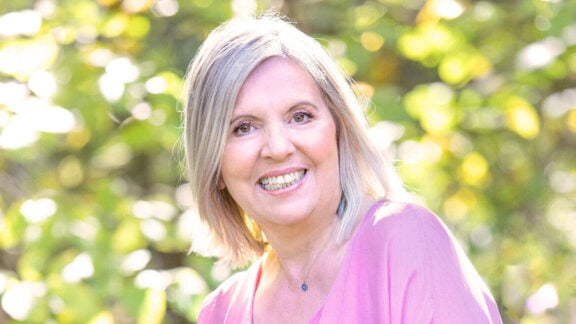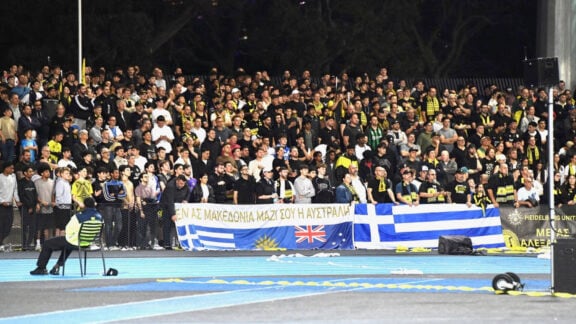Parliament’s not sitting on the afternoon I meet Phil Dalidakis, Labor’s only member for Melbourne’s sprawling Southern Metropolitan electorate. School groups mingle in parliament’s hushed reception hall, a family take a selfie in front of framed photographs of former premiers, and the echoes inside this historic building are quiet today.
“So much of what we have today was contributed by the Greeks of yesterday. We must encourage new generations of Greeks to build upon that history, to forge their own legacy.”
We choose the members’ restaurant as the venue for the interview. There’s not a soul in the place, other than a gracious waiter who takes our order; it’s the perfect setting to interview this former state and federal ALP staffer, whose family’s story is one of the more remarkable Greek Australian narratives.
Elected to the Upper House in Daniel Andrews’ 2014 victory, it’s the first time he has been ‘the people’s choice’ for a party he’s worked for for five years but supported since his teens.
To get a sense of what makes this new kid on the Spring Street block tick, you need to start way back.
In 1935 Gottfried and Irene Strauss – his maternal grandparents – lived in the town of Mülheim an der Ruhr, near Munich. They were Jewish, and despite the fact that both their fathers had fought for Germany in WWI, they were some of the first to face persecution during Adolf Hiltler’s rise to power.
Long before the name Dachau was burnt into history’s page, Gottfried was sent to that infamous concentration camp.
When he talks about this terrible chapter in his family’s story there’s a passion and pride in Dalidakis’ voice.
“Gottfried spent three and a half years there before he managed, with help from Irene, to escape its clutches,” says the softly spoken MP.
As war approached Irene arranged safe passage out of Germany for her husband, two brothers and her parents, first taking a train to Italy, before finding a berth on a ship heading to the only open port available to Jewish refugees – Shanghai. Scores of the Strauss clan were not so fortunate and in the years that followed would die in the Nazis’ gas chambers.
Gottfried and Irene arrived in Shanghai – a refuge for thousands of European Jews – in 1939, and despite Japanese occupation, stayed for more than six years.
Dalidakis’ mother Noemi was born a year after their arrival, her sister Dagmar four years later, and months after the Shanghai Ghetto’s liberation in September 1945, they were finally able to leave.
They headed to Australia after a relative living in Gippsland sponsored their migration, having seen their name by chance on a Red Cross list.
The Strauss family set up home in Acland Street, St Kilda, and slowly assimilated into Australian post-war society; their rite of passage including the adoption of the local football club. It’s a legacy that remains.
“That’s how we became Saints supporters,” says Dalidakis before adding with a smile, “much to my children’s sadness.”
One anecdote he shares about his grandmother in her first months down under paints a vivid picture of a remarkable woman.
“She took a bus from Melbourne to Canberra to meet Immigration Minister Arthur Calwell, to plead with him to get other Jewish refugees out of Shanghai.
“Can you imagine someone doing that today, and actually getting to meet with the minister? Times have changed.”
On his father’s side, the story is less fraught, but not without its own profound drama of separation and rebirth.
Dalidakis is immensely proud of his Greek heritage. “So much of what we have today was contributed by the Greeks of yesterday. We must encourage new generations of Greeks to build upon that history, to forge their own legacy,” he says, referencing the crisis facing Greece today.
Father George was born in Volos in 1937. An only child, his father’s assets – largely in Romania – were confiscated by the country’s communist leaders after the war, leaving the family penniless.
George worked hard and by the early 1960s was purser for the Chandris Shipping Line, which operated the Patris and Australis – the vessels that brought tens of thousands of migrants from southern Europe to the southern hemisphere.
Like many great romances, George and Noemi’s involved a journey. When the young Miss Strauss took the Patris for a rare holiday in Europe in 1965, by the time it reached Pireaus she and George were an item.
On their return to Australia, they set up home in Oakleigh before settling in East Brighton. In 1971 they were blessed with a daughter – Marina. Phillip was born five years later.
With multifaith parents, religion wasn’t something that took centre stage in the Dalidakis home.
“I never had any introduction to the Greek Orthodox Church as such. Dad was a member of the Panathsanalian Greek Brotherhood, which had a strong cultural influence on me, but it wasn’t until uni that the religious side of my life came into focus.
“That’s where I first connected with my Jewish background.
“It was Winston Churchill who said no two civilisations had done more for the world than the Greeks and the Jews. I’m fortunate that I have both.”
I ask why Judaism – beyond the familial bond – appealed so much as a young man.
“It just felt right, spiritually and emotionally. It was as if a missing piece of a puzzle had been found.
“Of course I also felt the loss of family from the Holocaust acutely, and perhaps a sense of duty to honour those killed; their death was not in vain, because as Jews, we’re still here.”
Dalidakis’ political journey – like his spiritual one, began with his parents. “As a child I was encouraged by them to think critically.
“My earliest political memory is from when I was seven years old and crying when I saw on TV this nice old man – Malcolm Fraser – announce that he’d lost the election.
“Little did I know that that would be the pathway to a strong Labor philosophy.”
That philosophy has little in common with socialism and more to do with social democracy.
“There needs to be a competitive tension in whatever you’re doing,” he says, before suggesting his political ideology is perhaps best traced to the reforming agendas of Hawke and Keating.
His membership of far-right think tank the Institute of Public Affairs has raised eyebrows for some, but the MP takes any criticism with a pinch of salt.
“I’m also a member of the Fabian Society, the very left-wing think tank. We don’t live in a vacuum,” he says.
“We can’t test our views on issues without understanding the opposite side. My membership of the IPA is to challenge my own way of thinking – to ensure it’s relevant.”
After six months in office, Dalidakis says judging the success of the Andrews’ government is about applying a simple formula: say what you do and do what you say.
“Daniel Andrews went to the electorate and said he wouldn’t build the East West link. Over two terms of government we pledged to replace 50 level crossings – 20 in our first four years. We need to get this done.
“We said we’d spend upwards of $4 billion on capital for our public education system. We need to do it. And we saw in the recent state budget, the treasurer commit 96 per cent of our budget promises in year one.”
Dalidakis admits it won’t be plain sailing. “We’re not going to get everything right all the time, but if people see we’re trying to get it right as best we can, as often as we can, we’ll be rewarded by the people.”
While the big policy areas get the limelight, one of the pieces of legislation closest to Dalidakis’ heart relates to child sex abuse victims.
“Following legislation put through a few weeks ago, victims can now sue for damages from their perpetrators or the institution, where before there was a statute of limitation on the number of years they had to bring such litigation.
“We’ve now removed that. It’s one my proudest moments in this parliament.”
There will no doubt be others for this driven politician whose socially progressive conscience is part of his genetic make up.
This weekend he’ll be at the footy with wife Debra and their three young children, cheering on the Saints as they go marching in.
Well, he and his illustrious ancestors always did have a soft spot for the underdog.









